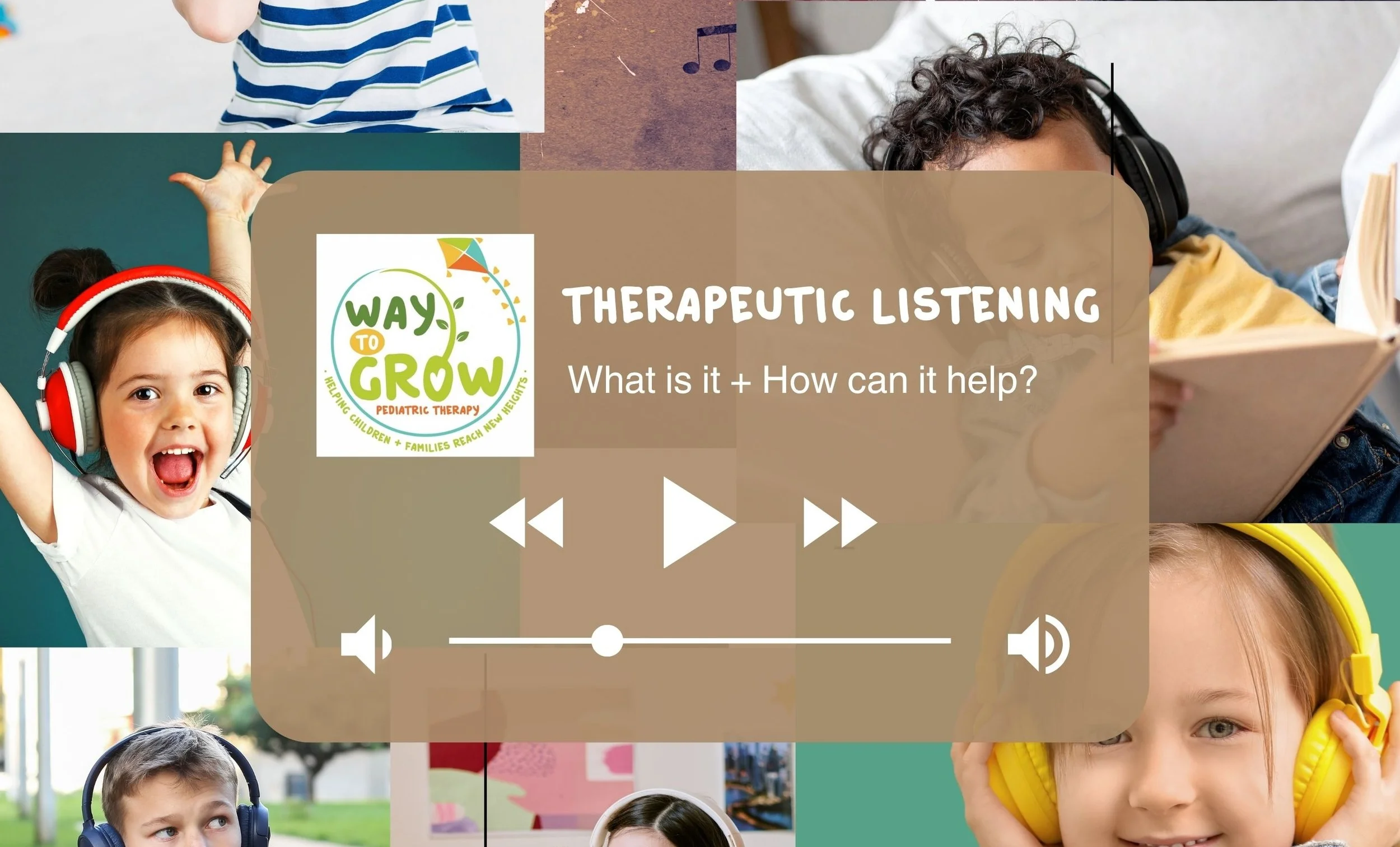Helping Children Grow with Therapeutic Listening
Helping Children Grow with Therapeutic Listening
Most of us can think of a time when a song came on the radio and our mood instantly changed. It may have made you smile, start dancing or have a calming effect. What if I told you music can help your child regulate to grow and reach their goals? Well, it can with Therapeutic Listening, a unique program developed by Vital Links. Therapeutic listening isn’t about playing background music to sooth your child. It is researched based approach that uses carefully altered sound to help children’s brains and bodies work together more smoothly.
What is Therapeutic Listening?
Therapeutic Listening takes ordinary songs and modifies them by highlighting certain tones, rhythms, and frequencies. These subtle shifts activate areas of the nervous system to organize itself through sound and movement to help improve areas of development such as focus, posture, coordination, and emotional balance. It can be especially helpful for kids with ADHD, autism spectrum disorders, learning challenges, or sensory processing differences, but many children with everyday regulation struggles benefit as well.
Areas Therapeutic Listening can target and help your child grow:
Social skills: Improved play skills and peer interactions
Sensory Processing: Improved overall regulation, transitions, and responses to sensory stimuli.
Attention: Overall improved attention and focus promoting on task behavior.
Executive Functioning: Increased ability to follow directions, increased time management, and improved organization skill.
Auditory Processing: Enhanced awareness, increased comprehension skills, improved noise/sound filtering, decreased auditory sensitivities
Better communication: Clearer speech and enhanced total communication.
Body Awareness: Increased spatial awareness, improved postural control, better sleep quality, and assistance with bowel and bladder control.
Motor Function: Promotion of bilateral coordination, Improved motor planning, enhanced fine and gross motor skills, improved handwriting
How the Therapeutic Listening program works
Your child’s therapist will work with you to complete a functional listening questioner. Using the results of the questioner and clinical observations the therapist will select the album most beneficial for your child to start with. The therapist will start the process during the therapy session. And the best part? After the initial set up sessions are done at home, giving parents an accessible tool to weave into daily life with support from a trained therapist Your child will listen to the music selection for two weeks. After two weeks the therapist will use your feedback and clinical observations to select the album for the next two weeks during the child's therapy session.
Children listen to the music twice a day for about 30 minutes using special headphones
Your child can listen to music doing regular routines of daily living paired with movement and play.
Caregivers and children are provided with documentation to track progress.
What Parents Should Know
Guidance matters: Therapeutic Listening should always be set up and overseen by a certified provider. They’ll know which albums to use and how to pace the program.
Expect ups and downs: Sometimes kids may seem more sensitive or emotional at first. It usually means their nervous system is adjusting.
It’s not a stand-alone fix: The program works best as part of a larger therapy plan that includes movement, play, and other supports.
Check for fit: Kids with certain medical conditions (like sound-triggered seizures or active ear infections) may not benefit from the program.
Final Thoughts
Therapeutic Listening is more than music. It’s about igniting the nervous system’s capacity for organization, connection and growth giving your child the opportunity to find calm, focus, and confidence in everyday life.
If you would like to learn more about Therapeutic Listening, ask one of our amazing OT staff members or reach out to the Way to Grow office.
Let’s get listening!
Kristi
The Way to Grow Pediatric Therapy Team 🌟
about our featured writer:
Kristi is one of our incredible certified occupational therapist assistants here at Way to Grow! Kristi has always had a passion for working with and helping children grow, and occupational therapy always felt like just the right fit for doing that! It’s a “little known” fact, but Kristi’s son is an occupational therapist too! His name is Drew. In her free time Kristi enjoys reading, going for walks, and spending time with her family - especially her precious granddaughter!


